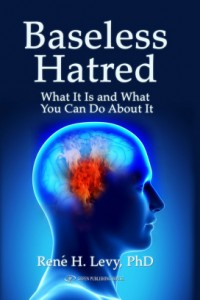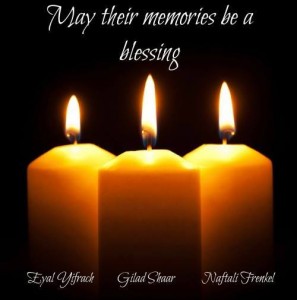I suppose I should have realized something extraordinary was afoot when a friend messaged me on Facebook to ask if I was “okay.” I wondered what he meant, until he said that he’d heard I was being “picked on.”
While it is true that my post reflecting on the entertainment industry, in the wake of Robin Williams’ death, did get a lot of attention — I can’t say I felt I was being “picked on.” The first two responses were from people whose voices I have long respected, and whose comments were very favorable. Admittedly, this did not describe the comments of many others, but, as I’ll explain in a moment, that didn’t change my perception at all. But now that my friend Rabbi Shmuel Simanowitz, whose legal career included representing many musicians, decided to praise my post at a kiddush (money quote: “I can’t tell you how many clients’ funerals I’ve attended”), and my friend and former colleague (and noted Jewish musician) Rabbi Avraham Rosenblum has defended my perspective as well (though no, Avraham, I may indeed be “square,” but not at all as argued) I suppose some follow-up commentary is in order.
I would like to begin with a meta-observation, not limited to this particular post. It is interesting to me that some of those most vociferous about not using stereotypes about any other ethnicity or group seem to have no problem with stereotyping Charedi Rabbis. Everyone knows that Charedi rabbis have no background in statistics, don’t understand mental health issues, and are generally parochial and backwards in their thinking, with no sympathy for a secular entertainer like Robin Williams. So the fact that one particular Charedi Rabbi might have grown up using expressions such as “nanu nanu” and “shazbat” with his friends, have studied probability theory, psychology and sociology (though, without apology, none of the requisite textbooks expressed the depth of understanding of human nature found in Sifrei Mussar or a Daf Gemarah), and count as immediate family a (medical) Doctor, a veteran educator with a Master’s in education and counseling, and the Director of an institute devoted to the study of human behavior… all of that makes no difference at all. Everyone knows that Charedi rabbis have no background in statistics, don’t understand mental health issues, and are generally parochial and backwards in their thinking, with no sympathy for a secular entertainer like Robin Williams.
In order to feel “picked on,” I’d need to have the impression that (a) the person understood what I wrote and (b) identified a major error in fact or perspective. So I’m not going to feel picked on even if the person who comments that “Robin Williams brought so much happiness to MILLIONS of people. He gave laughter to soldiers overseas and didn’t mind the danger he put himself in, he was selfless and kind” then concludes that “Just because he’s not Jewish doesn’t mean his life had no value except as a lesson in a Yeshiva where some Rabbi uses him” [as if I’d said otherwise] or that “[I] should be ashamed.” One thing’s for certain — nothing I wrote diminished Williams’ gifts or his generosity in the slightest, or cast his life as valueless. The first two sentences of this supposedly contrary comment express my own feelings about Williams quite well, and thus the last two are a reaction to the commenter’s prefabricated stereotypes rather than a response to anything I’d actually written. [Alternatively, as this was a comment to an article critical of my own, it’s possible she simply never opened my article before opining about it.]
Before writing my essay, I made a comment about the link between entertainers and suicide on Twitter — and was immediately challenged whether they were indeed any more likely to grapple with mental health issues. Fair enough. Thus some research was added to my post, demonstrating that harmful behaviors such as addiction, overdosing and suicide are almost endemic to top-flight entertainers. As it turns out, Mork had commented about this himself, calling Elvis Presley, Marilyn Monroe, Jimi Hendrix and others “victims of their own fame” (link below).
But once it was posted, someone attempted to belittle my perspective with what he imagined to be a more rigorous refutation, inadvertently proving that old adage about lies and statistics. The fact that the overall population of those working in arts, media and entertainment does not have a particularly high suicide rate is both true and entirely irrelevant to the topic of my post. Producers, cameramen and TV anchors are not unusually prone to suicide, at least to my knowledge — successful entertainers are a tiny fraction of all those employed in the industry. Prior to hearing Rabbi Simanowitz’s comment, someone shared with me that comedian Jim Horton wrote after William’s passing that “In the 25 years I’ve been doing stand-up, I’ve personally known at least eight comedians who committed suicide.” To pretend this isn’t unusual — and troubling — is to stick one’s head, ostrich-like, deep in the sand.
It is similarly untrue that I am unfamiliar or unsympathetic with mental health issues. Though some decided that I was somehow claiming that no observant person could develop mental illness, or that such people don’t deserve both our sympathies and professional help, there is nothing unaware or unsympathetic about the observation that fame seems to exacerbate depression, which I submit is obviously true — and again, was recognized without controversy when expressed by Williams himself as Mork, and by his friend Jim Norton.
Then came the argument that “rabbis shouldn’t sermonize about celebrities.” And here, I think, lies the crux of the issue. Besides the fact that “sermonize” is a pejorative in its own right, the author attempted to lump together my comments about Williams, with whose talents I am more than casually acquainted, with an older Rabbi who had used Eddie Vedder of Pearl Jam as a “foil to teach Torah.”
Given that I know almost nothing of Eddie Vedder (beyond his anti-Israel rant during Operation Protective Edge), much less the Rabbi who spoke of him, I cannot comment upon that. But Judaism teaches us to try to learn from every situation and everything that happens, and the idea that celebrities should somehow be “given a pass” by rabbis (but not, of course, by People Magazine or the National Inquirer) is rather silly. And from whence does this critic get the idea that I commented upon Williams doing “something not in accordance with the morals of the Torah?” Well, yes, intentional suicide is against Halacha, but the writer is hallucinating if he imagines that I thought Williams committed suicide “being of sound mind and body.” On the contrary, my only remarks about Williams himself were complimentary and understanding. He was brilliant, charitable and humanitarian, and deeply troubled.
But Rabbis, you see, can’t say something that is critical of celebrities, the subjects of modern adulation. How dare the Rabbi present Torah as something deeper, more meaningful, and vastly more fulfilling?! The critique only seems ludicrous because it is.
He then compounds his error by ridiculing the idea that anyone could claim to find happiness via entertainment. At least he temporizes by limiting “anyone” to those over 25, but I suggest that he sit in the Yankees’ section in full Orioles’ regalia for an object lesson in [much older] peoples’ allegiance to a bunch of guys hitting balls with sticks for their enjoyment.
There is another way to read my essay, of course. It could have been written by someone who felt personally touched by Williams, and who was pondering the loss of someone who easily crossed from humor to reflection — someone who could easily have been seen as having once read (and according to all reports, have helped written) his own epitaph. And when addressed that way, the post was neither irrational nor a knee-jerk condemnation, but a sincere expression of regret that fame, especially in the world of entertainment, can be as deadly as Mork once said — precisely because entertainment is supposed to help us be “happier,” yet is making its leading practitioners, those who gave us so much humor and simple fun, so miserable.
But considering the post in that light, you see, would have broken all those stereotypes.




 Many words have been written, and many more will be, about this awful event. But of all the things that were said, a brief comment to Twitter by Rabbi Steven Burg, Head of the Eastern Division of the Wiesenthal Center, summed it up best: “The world does not understand that this is not political for Jews. This was deeply personal. We all loved #EyalGiladNaftali.”
Many words have been written, and many more will be, about this awful event. But of all the things that were said, a brief comment to Twitter by Rabbi Steven Burg, Head of the Eastern Division of the Wiesenthal Center, summed it up best: “The world does not understand that this is not political for Jews. This was deeply personal. We all loved #EyalGiladNaftali.”